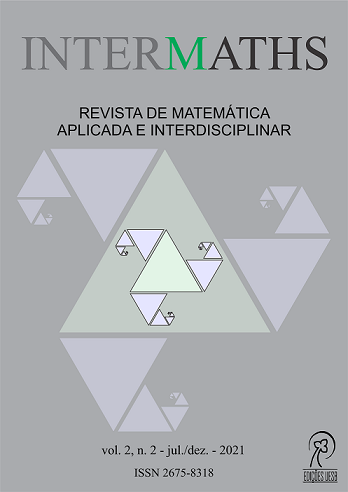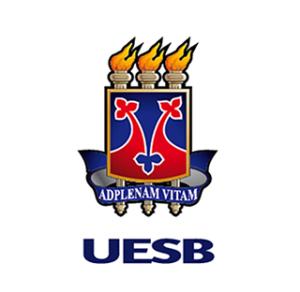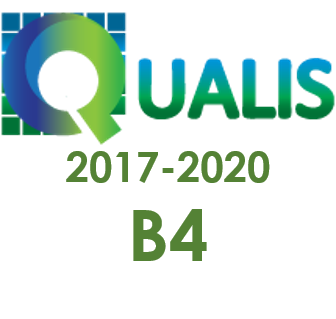Numerical experiments on Yuan’s Method for Nash equilibrium problems
DOI:
https://doi.org/10.22481/intermaths.v2i2.9819Keywords:
Equilíbrio de Nash, Métodos do tipo Jacobi, Região de Confiança, Implementação numéricaAbstract
In this paper numerical results are present on procedures to identify Nash Equilibrium. These experiments were systemized aiming to compare classical approaches with the algorithm propose by Y. Yuan in 2011. The method introduced by Yuan uses a Jacobi-type algorithm and a trust region globalization, developed specifically for Nash Equilibrium problems. In the original work, a theorical analysis is provide, but no considerations on the algorithm’s practical performance are made. Therefore, this paper goal is to meet the need of a numerical implementation and to discuss the algorithm’s numerical behave. In order to do that, the methods were tested in six different examples involving two-players dynamics. The examples differ from each other by the objective function of each player, concerning to vary the theoretical characteristics of them, which is the focus of this analysis. Finally, the effectiveness of both methods in finding a solution for Nash Equilibrium Problems is compared and important points, that influences the performance of Yuan’s algorithm, are raised.
Downloads
Metrics
References
J. Nash, “Two-Person Cooperative Games”, Econometrica, vol. 21, no. 1, pp. 128–140, 1953. https://doi.org/10.2307/1906951
F. Facchinei e C. Kanzow,“Generalized Nash equilibrium problems”, Annals of Operations Research, vol. 175, no. 1, pp. 177–211, 2010. https://doi.org/10.1007/s10479-009-0653-x
A. Fischer, M. Herrich e K. Schönefeld, “Generalized Nash Equilibrium Problems - Recent Advances and Challenges”, Pesquisa Operacional, vol. 34, no. 3, pp. 521–558, 2014. https://doi.org/10.1590/0101-7438.2014.034.03.0521
J. Nash, “Non-cooperative games”, Annals of mathematics, vol. 54, no. 2, pp. 286–295, 1951. https://doi.org/10.2307/1969529
F. Caruso, M. C. Ceparano, e J. Morgan “An Inverse-Adjusted Best Response Algorithm for Nash Equilibria”, SIAM Journal on Optimization, vol. 30, no. 2, pp. 1638–1663, 2020. https://doi.org/10.1137/18M1213701
S.Arenales eA. Darezzo, “Cálculo Numérico -Aprendizagem com apoio de Software”, São Paulo: Cengage Learning, 2016.
J. M. Martínez e S. A. Santos, “Métodos Computacionais de Otimização”, Rio de Janeiro: Sociedade Brasileira de Matemática, vol. 20, 1995.
A. H. Sherman,“On Newton-iterative methods for the solution of systems of nonlinear equations”SIAM Journal on Numerical Analysis, vol. 15, no. 4, pp. 755–771, 1978. https://doi.org/10.1137/0715050
Y. Yuan, “A trust region algorithm for Nash equilibrium problems”, Pacific Journal of Optimization, vol. 7, no. 1, pp. 125–138, 2011.
Y. Yuan, “Recent advances in trust region algorithms”, Mathematical Programming, vol. 151, no. 1, pp. 249–281, 2015. https://doi.org/10.1007/s10107-015-0893-2
Y. Yuan, “A review of trust region algorithms for optimization”, Proceedings of the Fourth International Congress on Industrial and Applied Mathematics (ICIAM), Edinburg, 5-9 July 1999, Oxford University Press, Oxford, UK, 271–282, 2000.
A. Dixit, S. Skeath e D. McAdams . G. Garbagio e B. Sartini, Games of Strategy:Third Edition, WW Norton & Compan, 2009.
H. Bortolossi, G. Garbagio e B. Sartini, Uma Introdução à Teoria Econômica dos Jogos, 26º Colóquio Brasileiro de Matemática, 2007.
Downloads
Published
How to Cite
Issue
Section
License
Copyright (c) 2021 INTERMATHS

This work is licensed under a Creative Commons Attribution 4.0 International License.
- Responsibility: The scientific content and the opinions expressed in the manuscript are the sole responsibility of the author(s).
- Copyrights: INTERMATHS.
- All content of Revista INTERMATHS/INTERMATHS journal is licensed under a Creative Commons - Atribuição 4.0 Internacional







